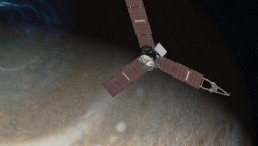Microsoft has filed a lawsuit against Japanese company Kyocera claiming that the company's cell phone lines violate Redmond's patents. As part of the lawsuit, the tech giant has asked a Seattle federal judge to ban U.S. sales of Kyocera's Duraforce, Hydro, and Brigadier lineups. In addition to the ban, it has been reported that Microsoft is also seeking compensation for damages.
While it may prefer to negotiate licensing agreements, Microsoft isn't above resorting to legal action if necessary.
"We respect Kyocera but we believe they need to license the patented technology they are using," Microsoft general counsel David Howard says. "We're hopeful this case will be resolved amicably."
The complaint from Microsoft cites seven different patents covering power savings, battery life, accelerometers, location, motion sensing, and other technologies. In this latest lawsuit, Microsoft accuses Kyocera of using patented technology including location services and text messaging.
Specifically, the lawsuit refers to licenses for "self-aware" devices that respond to changes in the user's environment and multi-tasking on a computer and smartphone at the same time.
The phones in question are Android-based devices, and while it might be surprising, Microsoft holds patents relating to navigation and how websites display content. This technology is utilized on the Android and Chrome platforms making Microsoft a fair amount of money through licensing these patents to phone makers. In 2013, Microsoft received $3.4 billion from licensing agreements, much of it from Android OEMs that already struggle to return a profit.
While Microsoft's strategy on licensing has met with a number of successes, it has had less luck in the few cases it has taken to court. For example, despite challenging Motorola Mobility on 17 Motorola patents through many legal avenues, it has only seen success with one pertaining to ActiveSync.
In 2011, Microsoft sued Barnes and Noble, Foxconn, and Inventec over the Nook reader that was later settled. More recently, Microsoft sued Samsung after the Korean company attempted to exit the licensing agreement that netted Microsoft $1 billion in 2013 alone.
Samsung said Microsoft's Nokia acquisition last year breached the business collaboration part of the agreement, arguing that because Microsoft became a competitor, the pair could no longer share trade secrets. This lawsuit also ended in a settlement out of court on February 9.
The case was filed in U.S. District Court, Western District of Washington and is listed under Microsoft Licensing LLC vs. Kyocera and Kyocera Communications Inc., 15-346.














